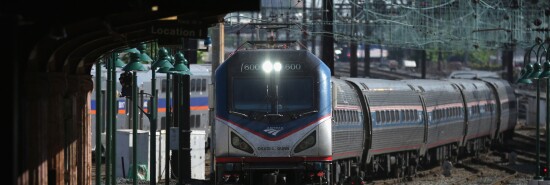
Amtrak is helping the planet by … reducing services?
Timothy P. Carney
Video Embed
“We congratulate Amtrak for this ambitious commitment to further reduce its carbon footprint, cementing its place as a leader in the clean transportation revolution,” Transportation Secretary Pete Buttigieg said in the fall when the quasi-governmental railroad pledged to reach “net-zero” greenhouse gas emissions by 2045.
“Amtrak is continuing to create innovative solutions today that reduce energy consumption, emissions, and waste even further,” Amtrak stated in a release, pointing to its “sustainability report.”
CALIFORNIA’S HIGH-SPEED RAIL PRICE TAG CONTINUES TO BALLOON WITH NO DEADLINES IN SIGHT
Let’s look at that most recent sustainability report and see how Amtrak is reducing its emissions.
“Due to limited train service during the height of the pandemic, emissions were reduced 28% compared to FY19 (pre-pandemic), passing our reduction goal of 5% and staying on track to reduce 40% by 2030,” the sustainability report brags.
Likewise: “Reduced train service drove diesel fuel consumption down 32% compared to FY19 (pre-pandemic), passing our 5% reduction goal.”
Reducing train usage is a curious way to help the planet.
The Twitter account above, which flagged this language from Amtrak, is dedicated to increasing the frequency of mass transit. Running more trains — subways, commuter rails, and intercity trains — actually induces demand. If trains are regular, people are more likely to take them. If trains are infrequent, people don’t consider taking them because they are much less convenient and reliable than driving — or flying.
So, reducing trains to save the planet makes as much sense as increasing flights and car miles traveled to save the planet.
To some extent, this is a weird COVID lockdown thing. But it’s also a perfect example of how government always measures the wrong thing in a way that gets in the way of actual progress.
Consider how federal regulations on fuel economy led to more aluminum usage in cars, which offsets a lot of the benefits of fuel economy. Or consider how government curbs on U.S. coal usage facilitate Chinese or African coal usage, which isn’t good for the planet.
Then again, I just thought of an idea for how Amtrak could go zero-emissions starting tomorrow if it really wanted to …
